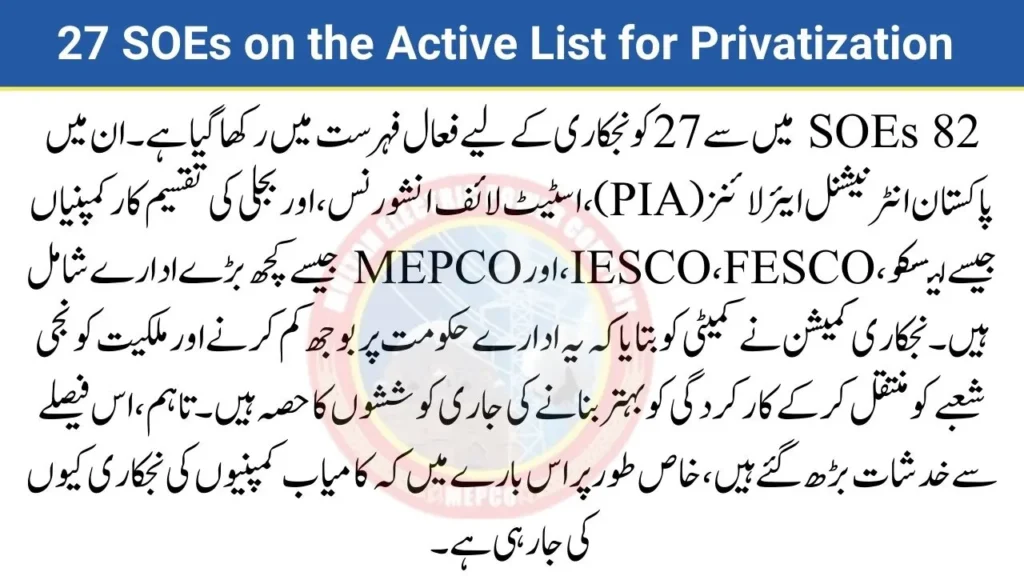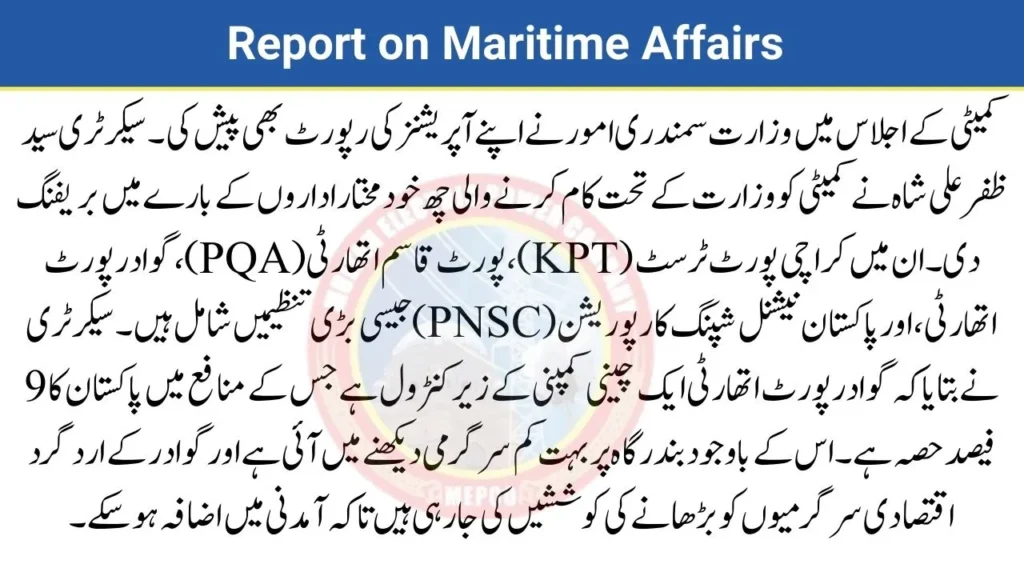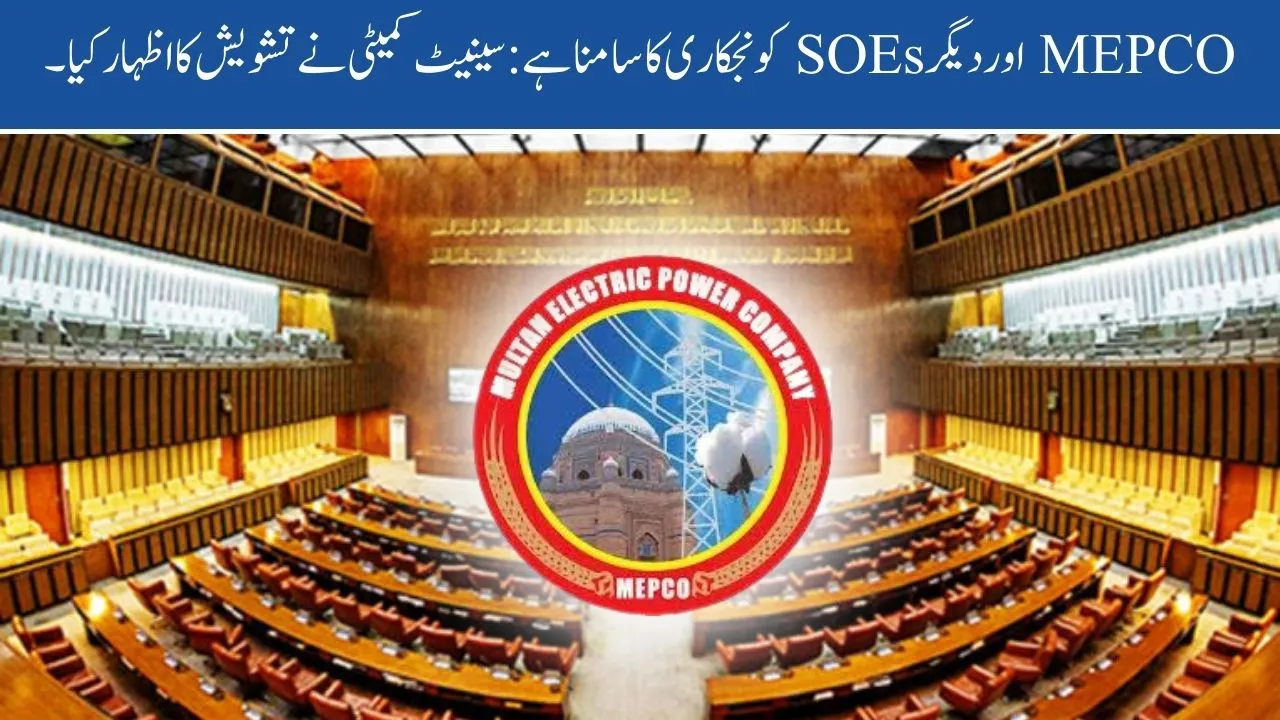The Senate Functional Committee on Devolution has requested detailed information on 82 state-owned enterprises (SOEs) from the Ministry of Privatization. This decision was made during a meeting chaired by Senator Dr. Zarqa Suharwardy Taimur at the Parliament House. The committee discussed the current status of these enterprises, especially those on the active privatization list. This request is part of an ongoing effort to assess the performance and future of these entities.
| Key Information | Details |
| Number of SOEs | 82 |
| Entities on Active Privatization List | 27 |
| Major Entities | PIA, LESCO, IESCO, FESCO, MEPCO |
| Revenue from Maritime Affairs | Rs 80 billion for 2024 |
Contents
27 SOEs on the Active List for Privatization
Out of the 82 SOEs, 27 have been placed on the active list for privatization. These include some major entities like Pakistan International Airlines (PIA), State Life Insurance, and several electricity distribution companies such as LESCO, IESCO, FESCO, and MEPCO. The Privatization Commission informed the committee that these entities are part of an ongoing effort to reduce the burden on the government and improve efficiency by transferring ownership to the private sector.
However, this decision has raised concerns, especially about why successful companies are being privatized.

Senator Ghumro’s Concerns About Privatization
Senator Zamir Hussain Ghumro questioned the logic behind the privatization of profitable entities. He pointed out that IESCO is recovering 99% of its dues with only 65% of its staff, while LESCO and FESCO have recovery rates of 98%, and MEPCO follows with 97%. Despite this high level of performance, these companies are still on the list for privatization. The Senator raised concerns about how this move could affect the overall performance of these electricity distribution companies.
PIA’s Privatization in Two Phases
The officials also discussed the privatization of PIA. The committee was informed that six parties have expressed interest in the initial bidding for PIA, including Airblue, Arif Habib Company, and Air Sial. The privatization of PIA will take place in two phases. In the first phase, the airline itself will be sold, and in the second phase, its assets, including the Roosevelt Hotel, will be privatized.
Currently, PIA has 18 operational aircraft. The chairperson of the committee questioned why the government is planning to privatize PIA when it is still carrying liabilities worth Rs 850 billion.
Report on Maritime Affairs
The Ministry of Maritime Affairs also presented a report on its operations during the committee meeting. Secretary Syed Zafar Ali Shah briefed the committee on the six autonomous organizations working under the ministry. These include major organizations like the Karachi Port Trust (KPT), Port Qasim Authority (PQA), Gwadar Port Authority, and the Pakistan National Shipping Corporation (PNSC).
The Secretary mentioned that the Gwadar Port Authority is controlled by a Chinese company, with Pakistan holding a 9% share of the profits. Despite this, the port has seen little activity, and efforts are being made to boost economic activity around Gwadar to increase revenue.

Also Read: How to Resolve MEPCO Bill Issues by Filing an Online Complaint Form in 2024
Revenue Generated by the Ministry of Maritime Affairs
- Rs 80 billion total revenue for the current financial year.
- Rs 34 billion earned by Port Qasim.
- Rs 10 billion earned by Karachi Port Trust.
- Rs 2 billion non-development budget for the ministry.
Conclusion
The Senate committee has requested further details about 82 state-owned enterprises, focusing on those listed for privatization. Concerns remain about the privatization of profitable entities like LESCO and IESCO. The committee also questioned the logic behind privatizing PIA while still managing its large debt. The Ministry of Maritime Affairs is showing progress, with strong revenue generation, especially from Port Qasim. However, efforts to increase economic activity, particularly around the Gwadar Port, are still needed. The future of these SOEs will likely continue to be a topic of discussion as the privatization process moves forward.
